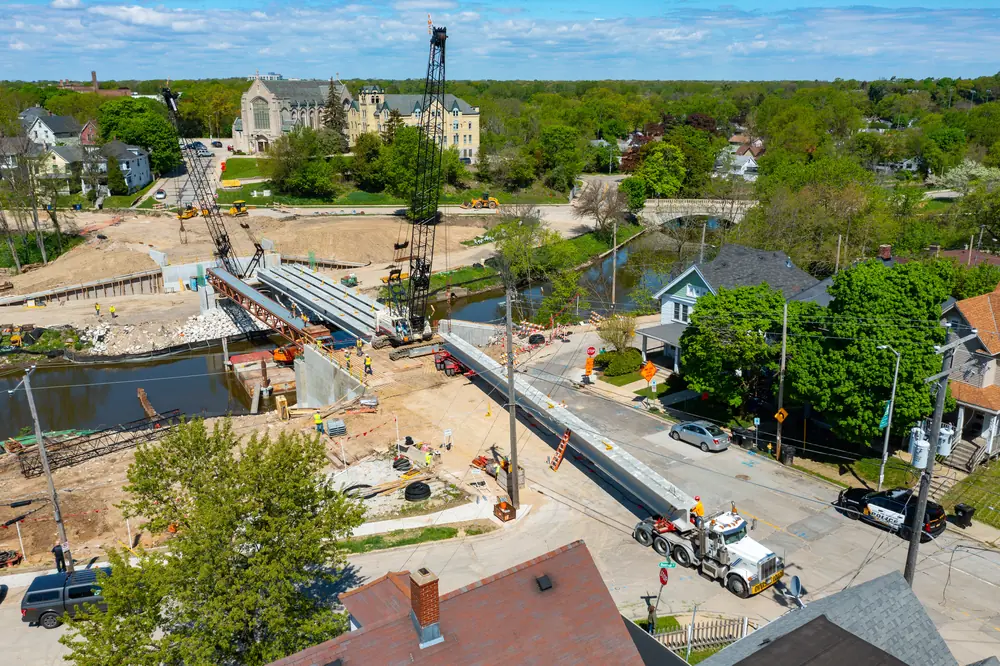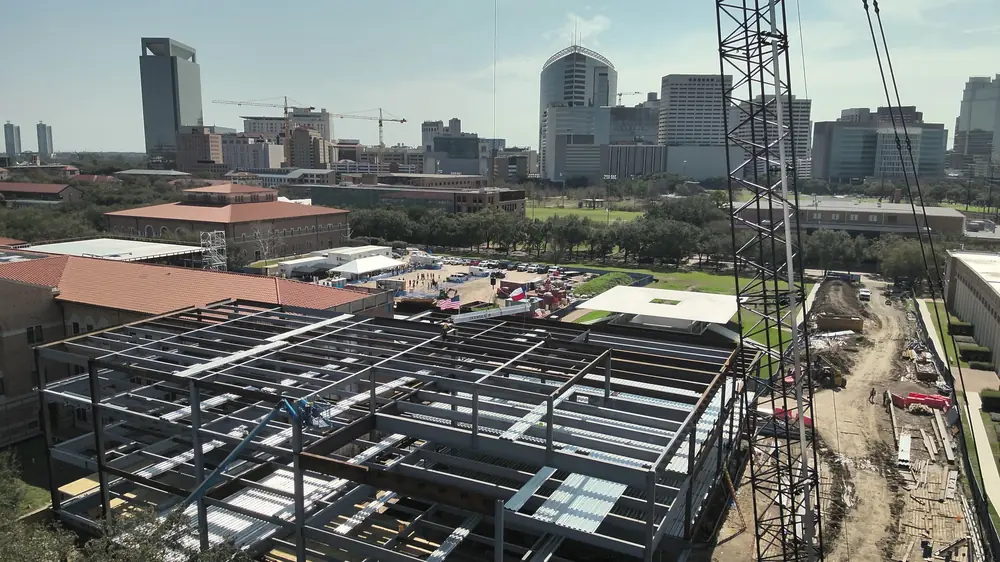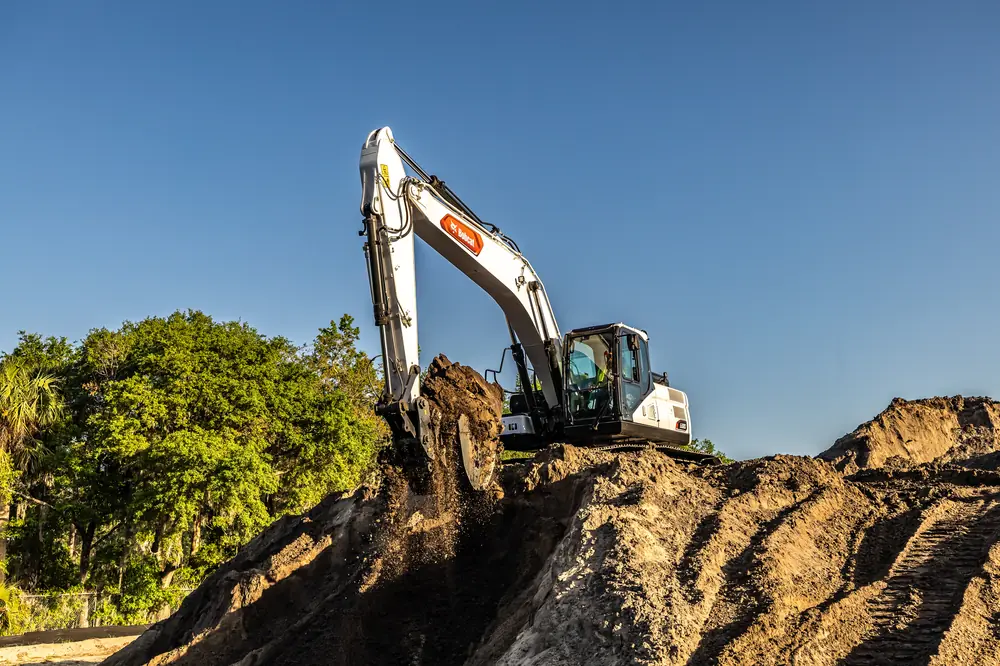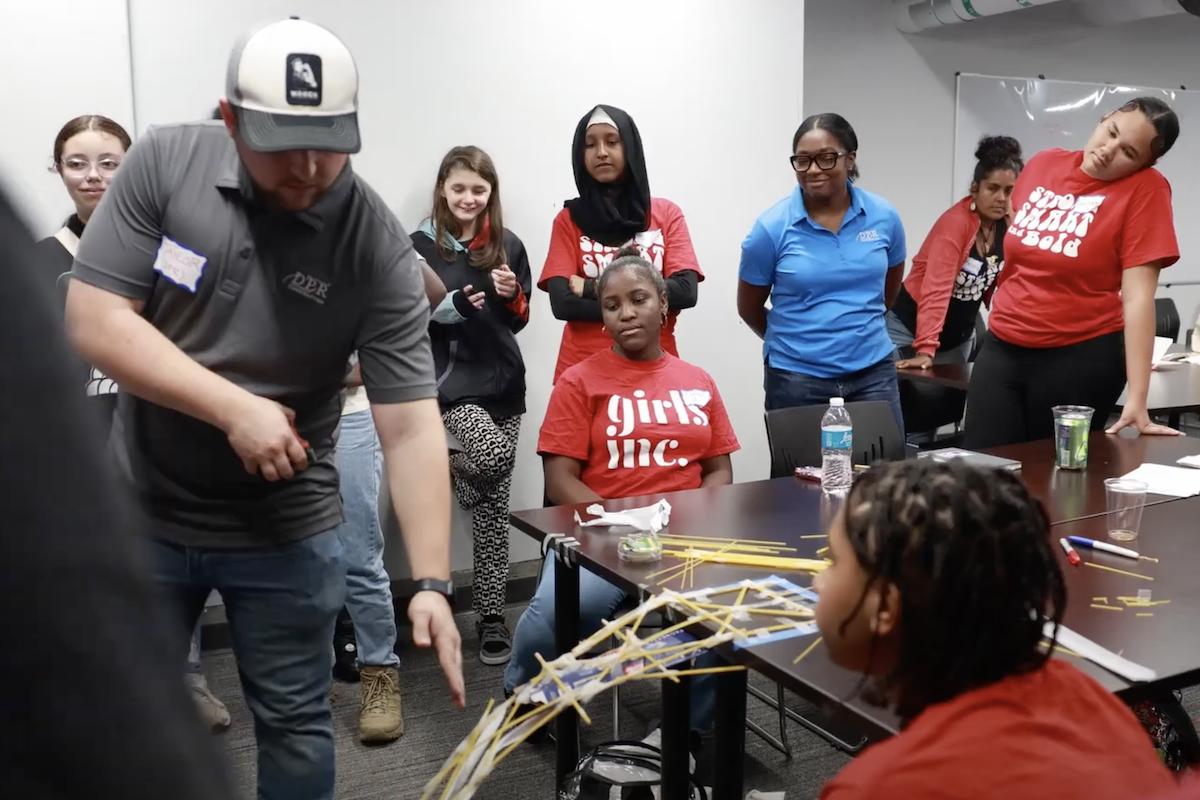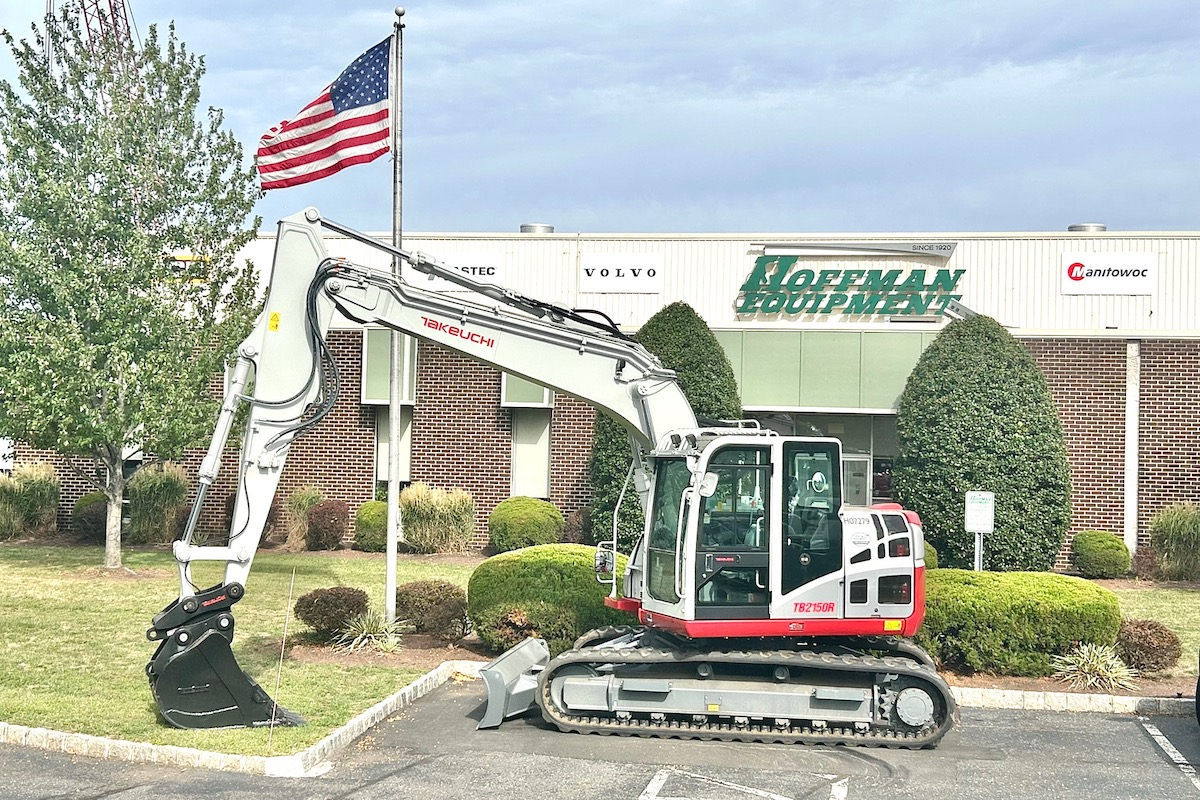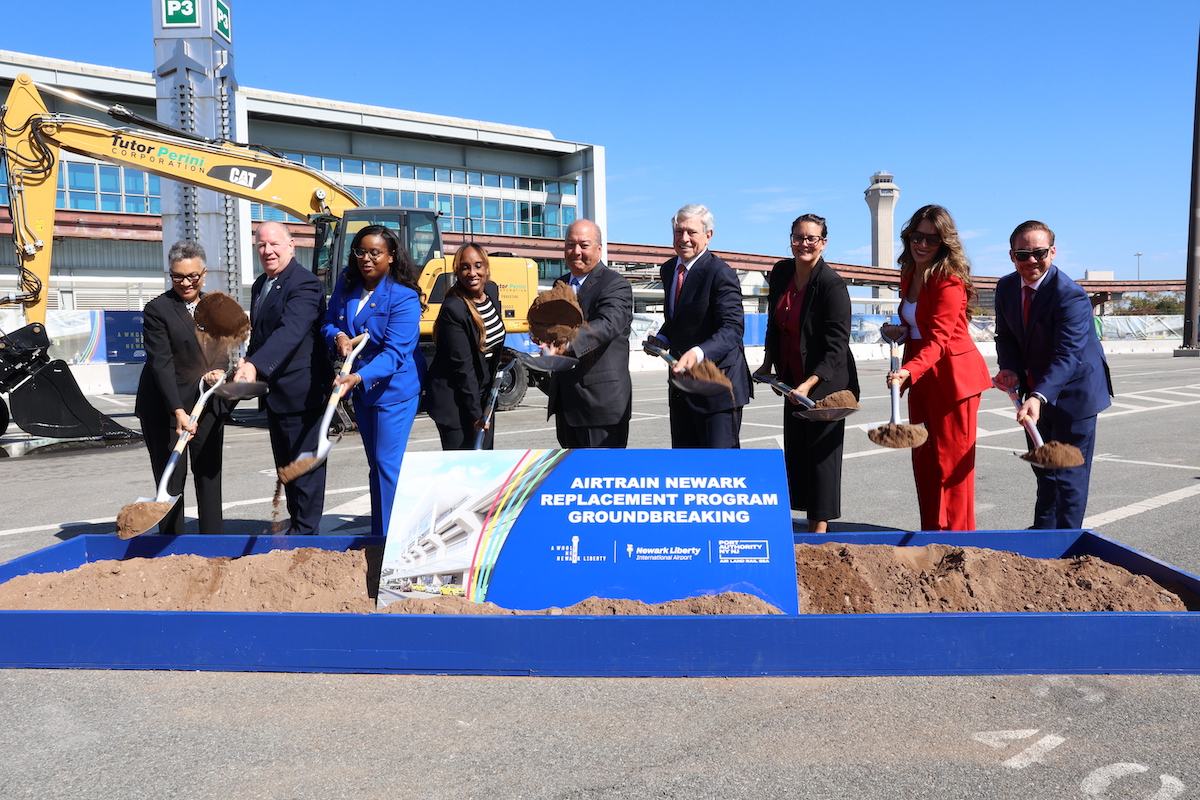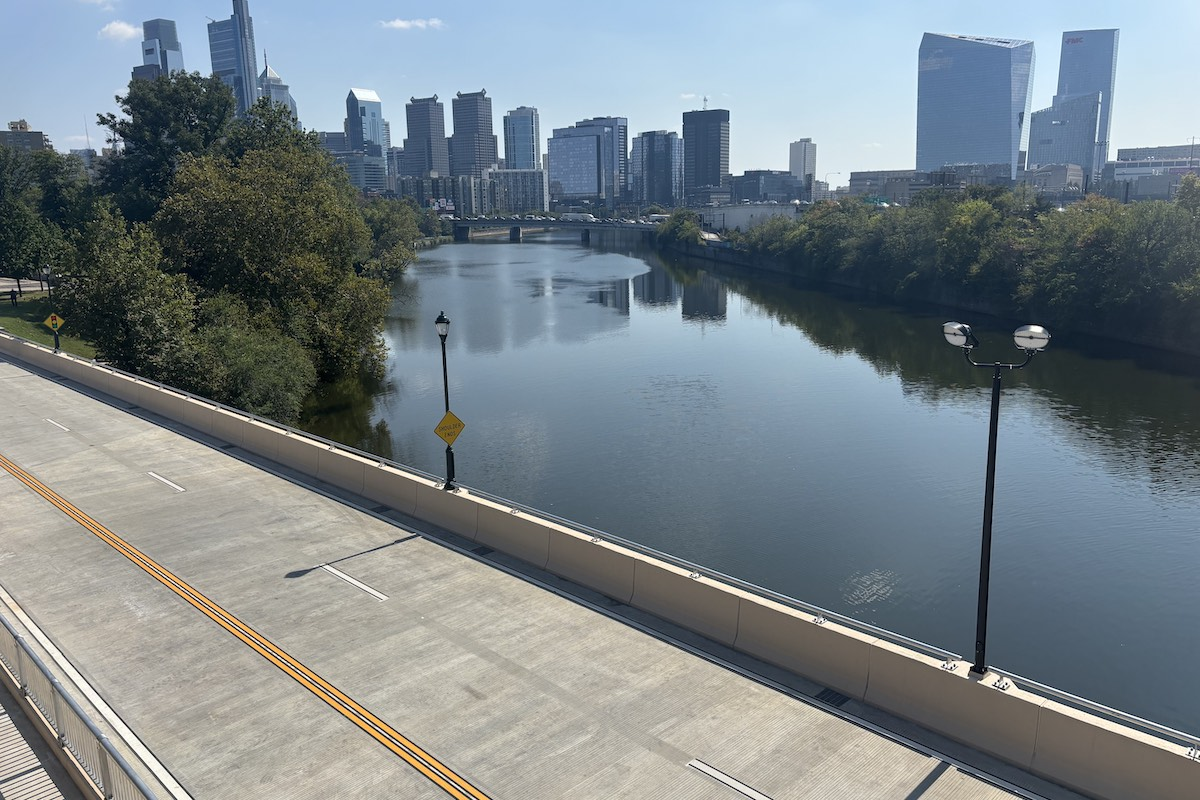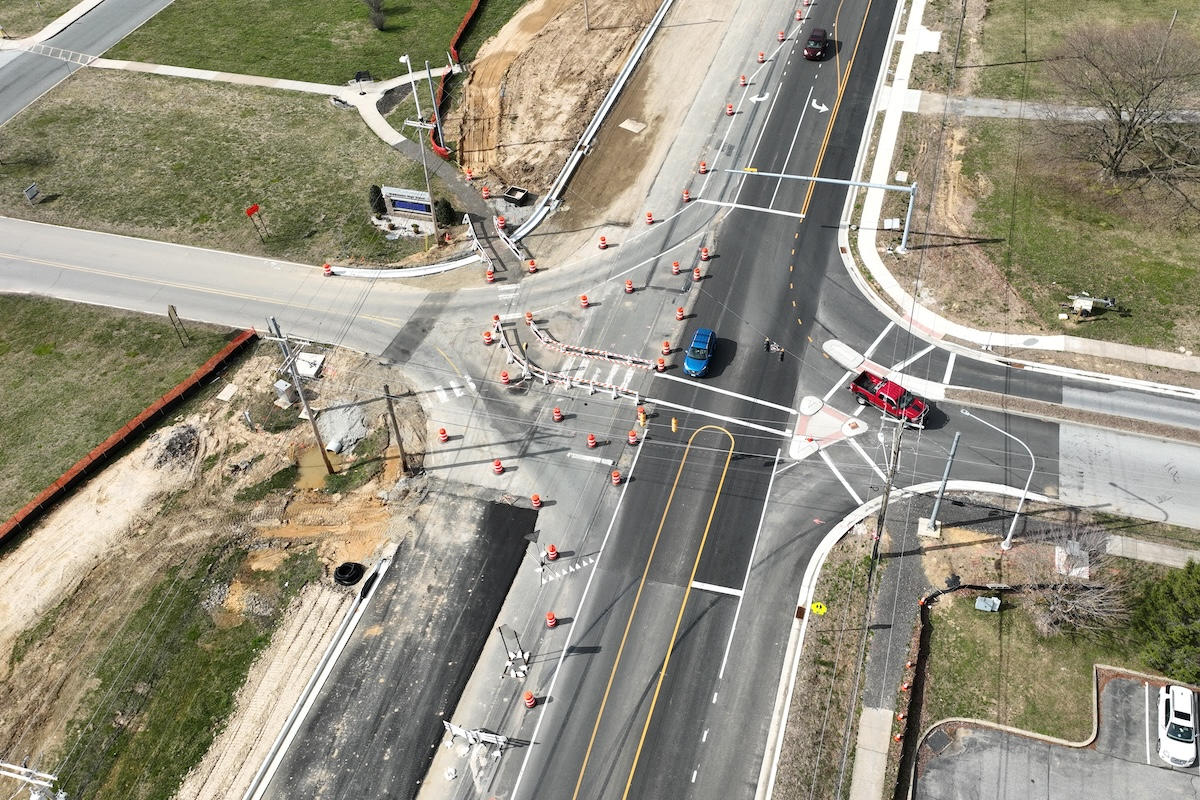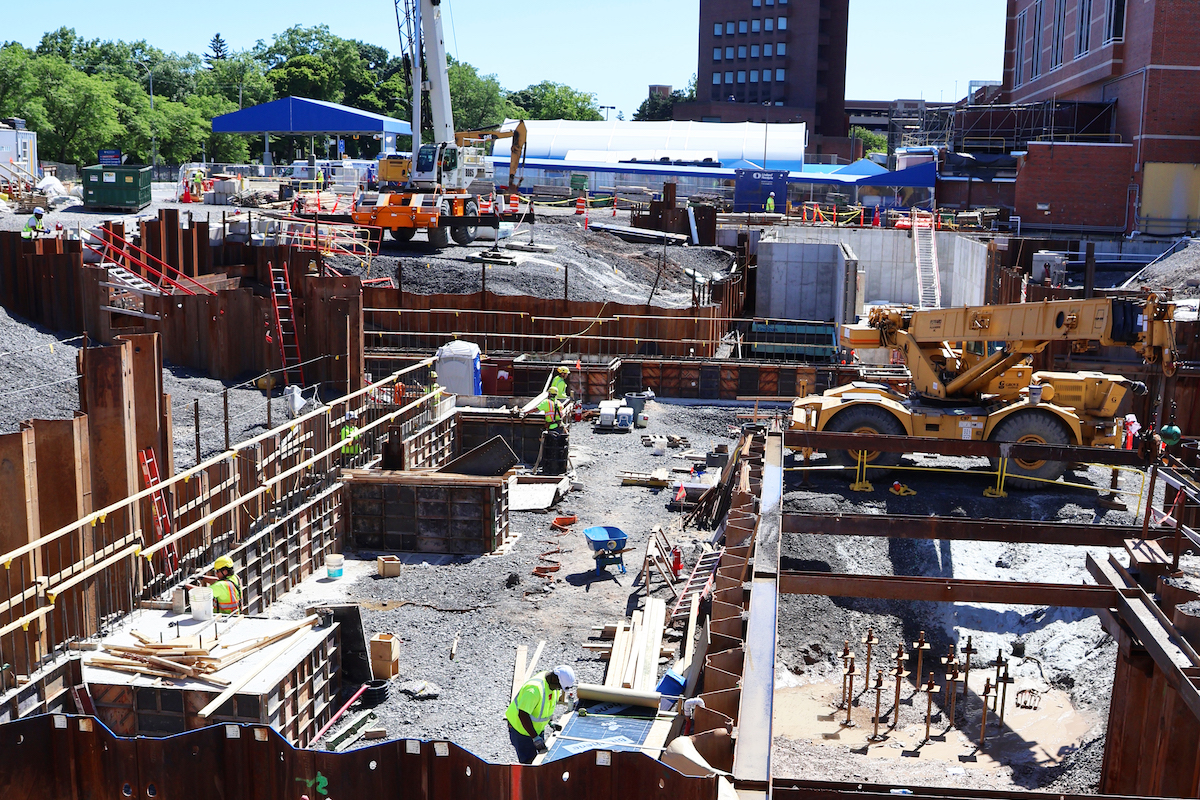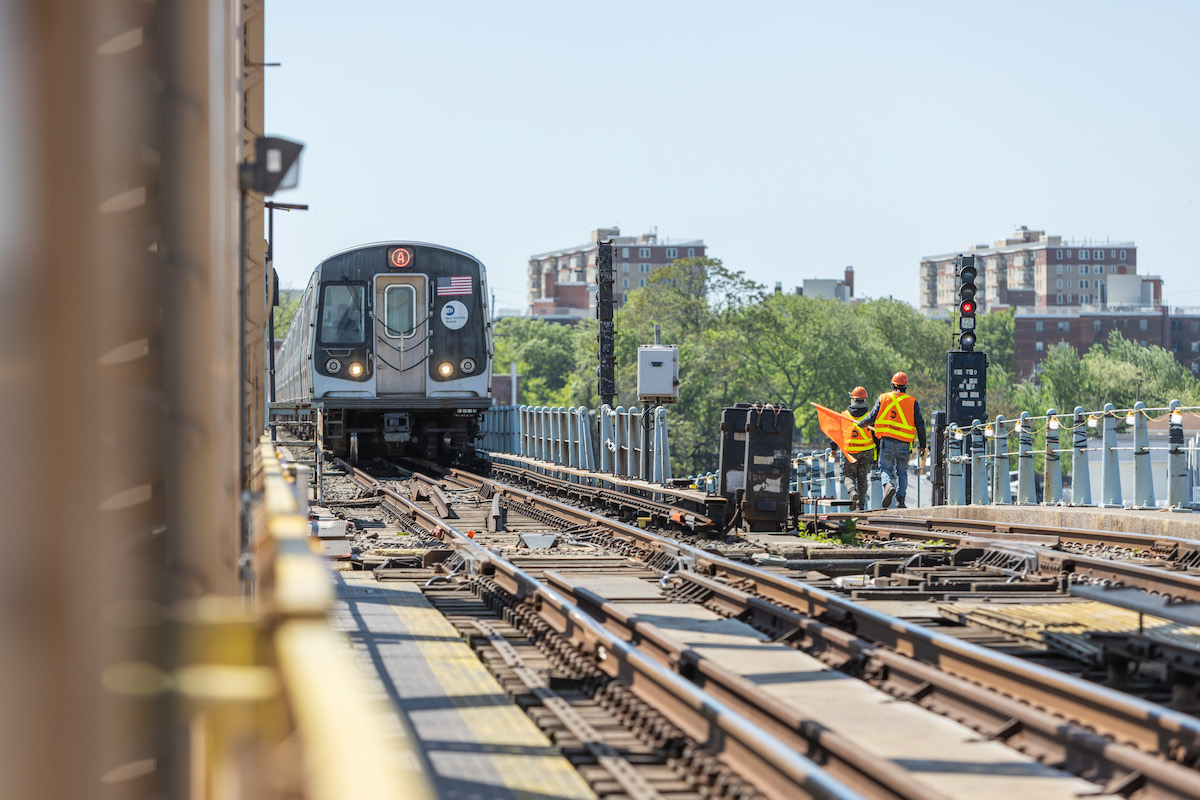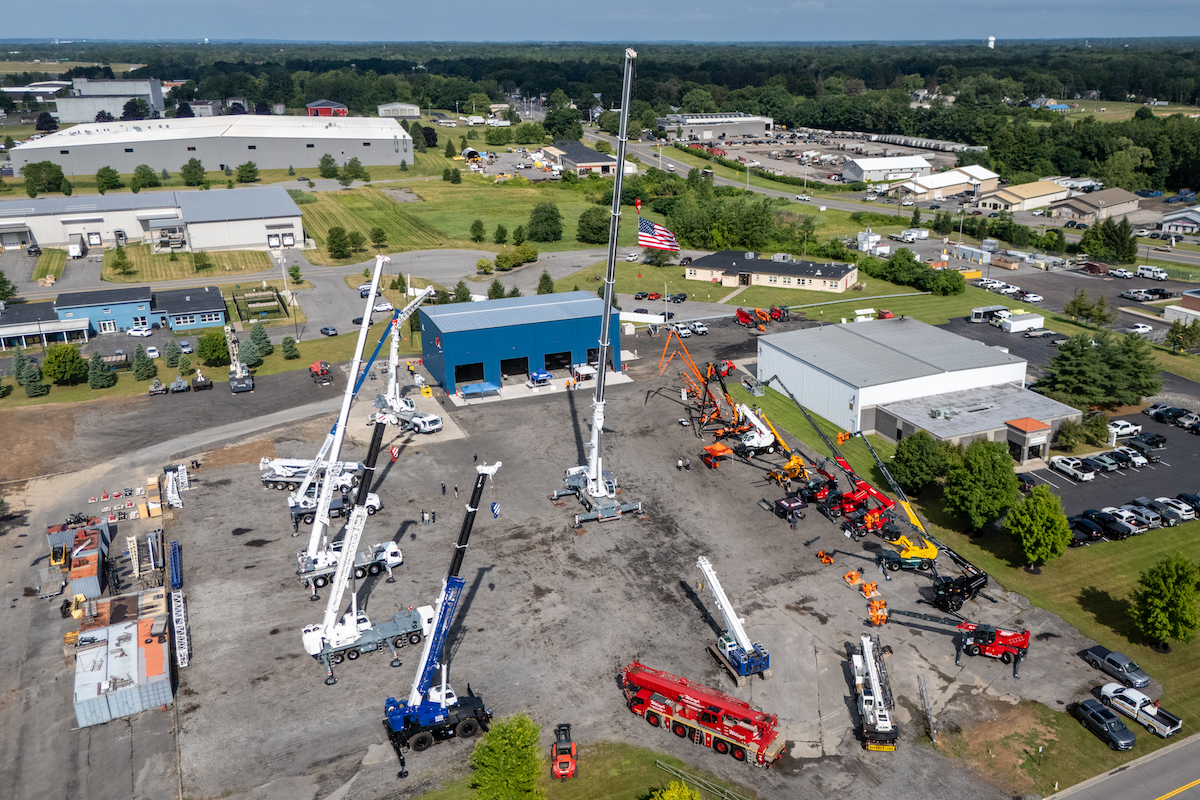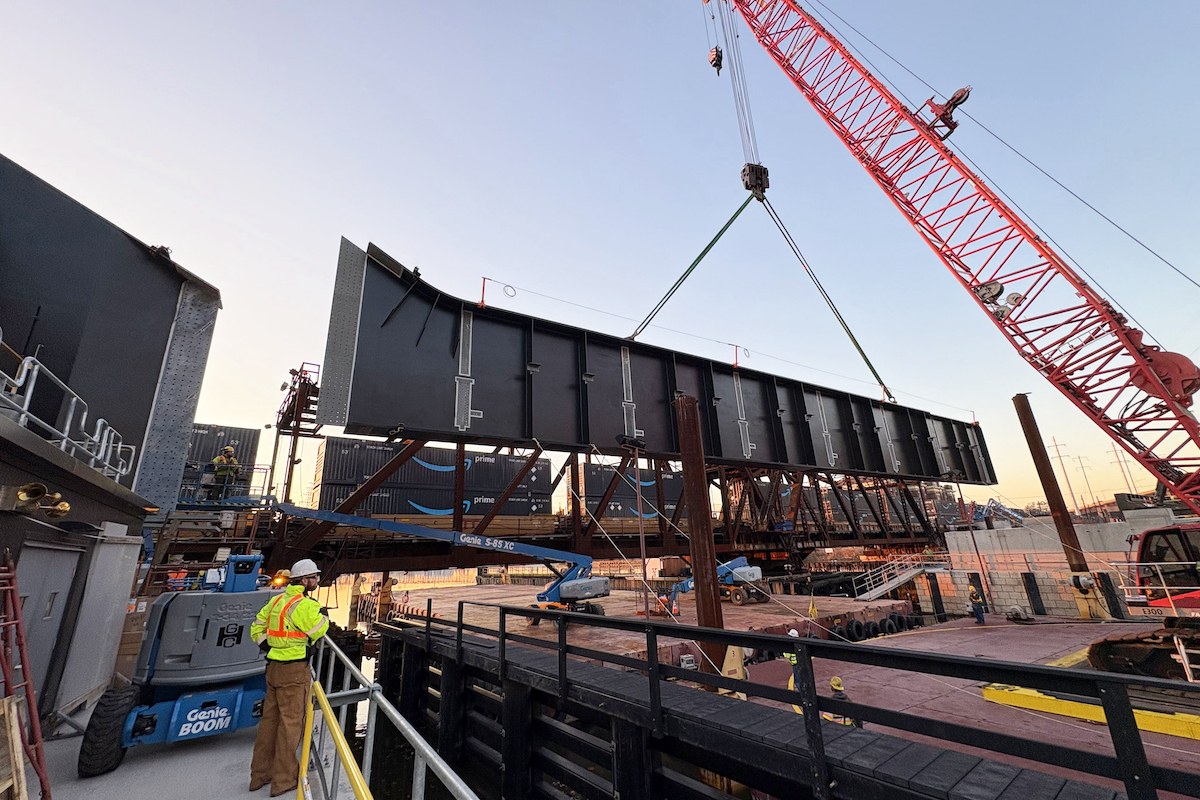The Rockingham Bypass, which will be referred to as I-73/74, is part of two of the Strategic Transportation Corridors. The new 7.2-mile bypass consists of a four-lane, median-divided freeway. The current average daily traffic count in the area is approximately 20,000 vehicles, and the 2040 projected count is 33,000 vehicles.
The City of Rockingham, which is in central North Carolina and near the border with South Carolina, is being bypassed. This project connects I-74 with a high-speed (65 mph) interstate standard facility.
“Currently citizens travelling on I-74 must travel through the city limits with a maximum speed limit of 45 mph and encounter multiple traffic signals,” says Cary Fine, a Resident Engineer with NCDOT. “Removing interstate traffic from signalized intersections and local roads was critical to safe and efficient travel through this corridor.”
Other work includes upgrading the existing U.S. 74 Bypass. The interchange will have six 12-foot travel lanes – previously, there were four – and a 60-foot median. Two new interchanges are also being constructed.

| Your local Trimble Construction Division dealer |
|---|
| SITECH Allegheny |
| SITECH Northeast |
The team has had to deal with some unique geotechnical issues, including immense rock cuts, groundwater intrusion, and highly plastic soils during their work on the project. They have used innovative tools such as reinforced soil slopes to help provide global stability to roadway embankment fills.
“These reinforced soil slopes use high strength geosynthetics placed horizontally throughout the slope face to provide a stable slope structure,” Fine says. “This design was utilized on numerous large roadway embankments, with the largest being 80 feet.”
Vecellio & Grogan, which is based in Beckley, West Virginia, is the general contractor on the project. The firm specializes in heavy civil roadway construction and has worked on numerous NCDOT roadway projects.
“Vecellio & Grogan has bought experience along with a high level of expertise to the project,” Fine says. “They’ve provided valuable, innovative input on how to efficiently accomplish several challenging construction operations on the project.”
Other relevant happenings occurred over the years, including public meetings and environmental studies. Right-of-way acquisition began in 2009 and was substantially completed for all sections. Some design changes and utility relocations have required minor additional acquisitions of right of way and permanent utility easements as late as 2019.
Despite all the preliminary work being completed by 2009, the project was initially slated to begin in 2026. The delay was due to a lack of funding.
Ultimately, the project was accelerated and construction began in the fall of 2019. “The project was accelerated in the State Transportation Improvement Program (STIP) due to need and the fact that the project was shovel-ready for construction,” Fine says. The project was also pushed forward since all the right of way had been acquired, utility relocations were primarily complete, and the project design was finalized.
With the long-planned project finally underway, NCDOT planned for completion data in late 2023. Due to the pandemic, the schedule for the project was backed up. Fine explains that supply chain and workforce issues impacted progress. The Rockingham Bypass is on schedule to be open to traffic by May 2025.
According to the Build NC website, “Those projects will benefit residents across North Carolina by providing the infrastructure to better access jobs, health care facilities, and educational opportunities.
Of the $308 million, $146 million was budgeted for construction. The remainder was for preconstruction/design, right of way acquisition, and necessary utility relocations. The project is approximately $15 million over budget. “The increase in project delivery cost is due to significant escalations in material costs experienced over the past couple of years,” Fine says.
When the Rockingham Bypass project is complete, North Carolina will have improved its Strategic Transportation Corridors. This will enhance economic activity, benefiting state residents and people throughout the region. Congestion in and around Rockingham will be lessened, and traffic will flow better since interstate traffic will be removed from signalized intersections, local roads, and highways.








